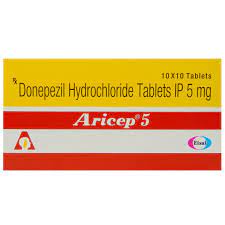depzil
Introduction to Depzil
Depzil is a widely recognized medication primarily used in the management of Alzheimer's disease. It is designed to improve cognitive function and slow the progression of symptoms in patients experiencing mild to moderate dementia. Depzil works by enhancing the communication between nerve cells in the brain, which can help improve memory, awareness, and the ability to perform daily functions. This medication is available in tablet form, making it easy to administer and integrate into a daily routine. Its effectiveness and ease of use have made it a popular choice among healthcare providers and patients alike.
Composition of Depzil
The active ingredient in Depzil is Donepezil, which is present in a 10mg dosage per tablet. Donepezil belongs to a class of medications known as cholinesterase inhibitors. It works by increasing the levels of a chemical messenger called acetylcholine in the brain. Acetylcholine is crucial for memory and learning, and its increased presence helps improve nerve cell communication, thereby enhancing cognitive function and slowing the progression of Alzheimer's symptoms.
Uses for Depzil
Depzil is primarily used for the following purposes:
- Management of mild to moderate Alzheimer's disease.
- Improvement of cognitive function in patients with dementia.
- Enhancement of memory, awareness, and the ability to perform daily tasks.
Side Effects of Depzil
While Depzil is generally well-tolerated, some patients may experience side effects, including:
- Nausea and vomiting
- Diarrhea
- Insomnia
- Muscle cramps
- Fatigue
- Loss of appetite
- Dizziness
Precautions for Depzil
When taking Depzil, consider the following precautions:
- Inform your doctor about any allergies or medical conditions you have.
- Discuss all medications you are currently taking to avoid potential interactions.
- Use caution if you have a history of heart problems, ulcers, or seizures.
- Avoid alcohol as it may increase the risk of side effects.
- Pregnant or breastfeeding women should consult their healthcare provider before use.
Conclusion
Depzil, with its active ingredient Donepezil, offers a valuable option for managing symptoms of Alzheimer's disease. By enhancing cognitive function and slowing symptom progression, it helps improve the quality of life for patients with dementia. While generally safe, it is important to be aware of potential side effects and take necessary precautions. Always consult with a healthcare provider to determine if Depzil is the right choice for you or your loved one.
Similar Medicines
More medicines by Psycormedies
Available in 2 variations

Depzil 10mg Tablet
strip of 10 tablets

Depzil 5mg Tablet
strip of 10 tablets











.svg)
